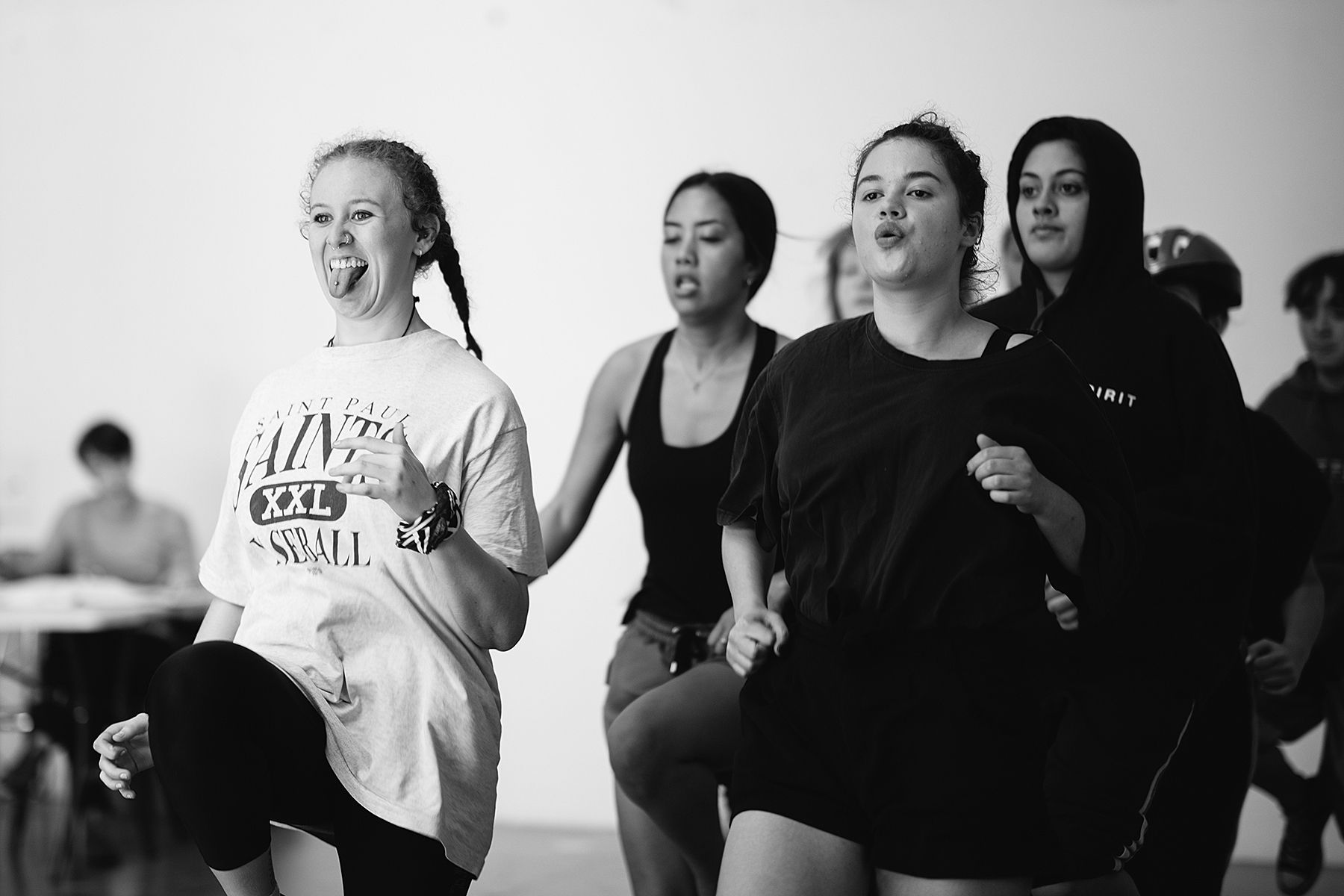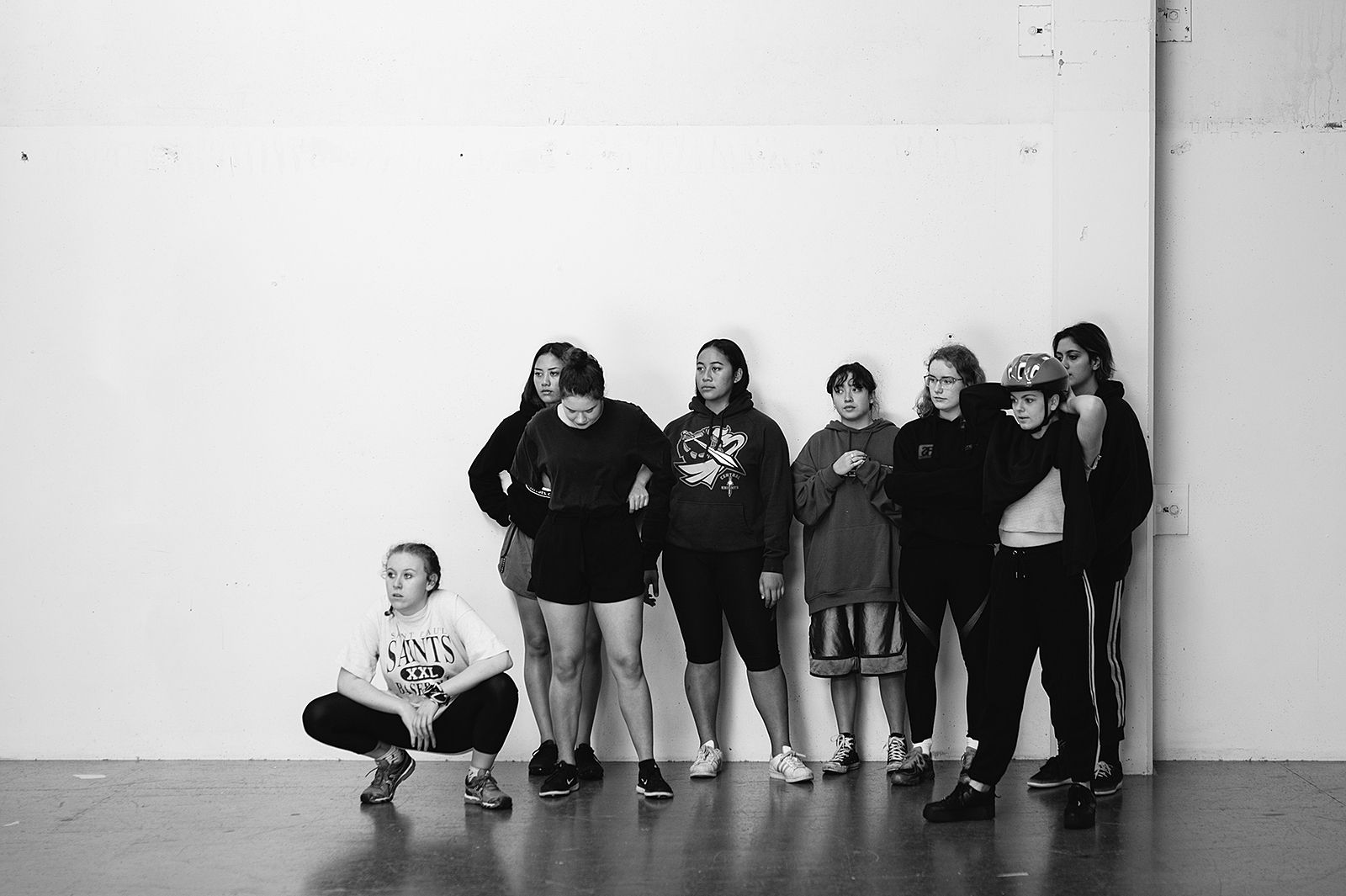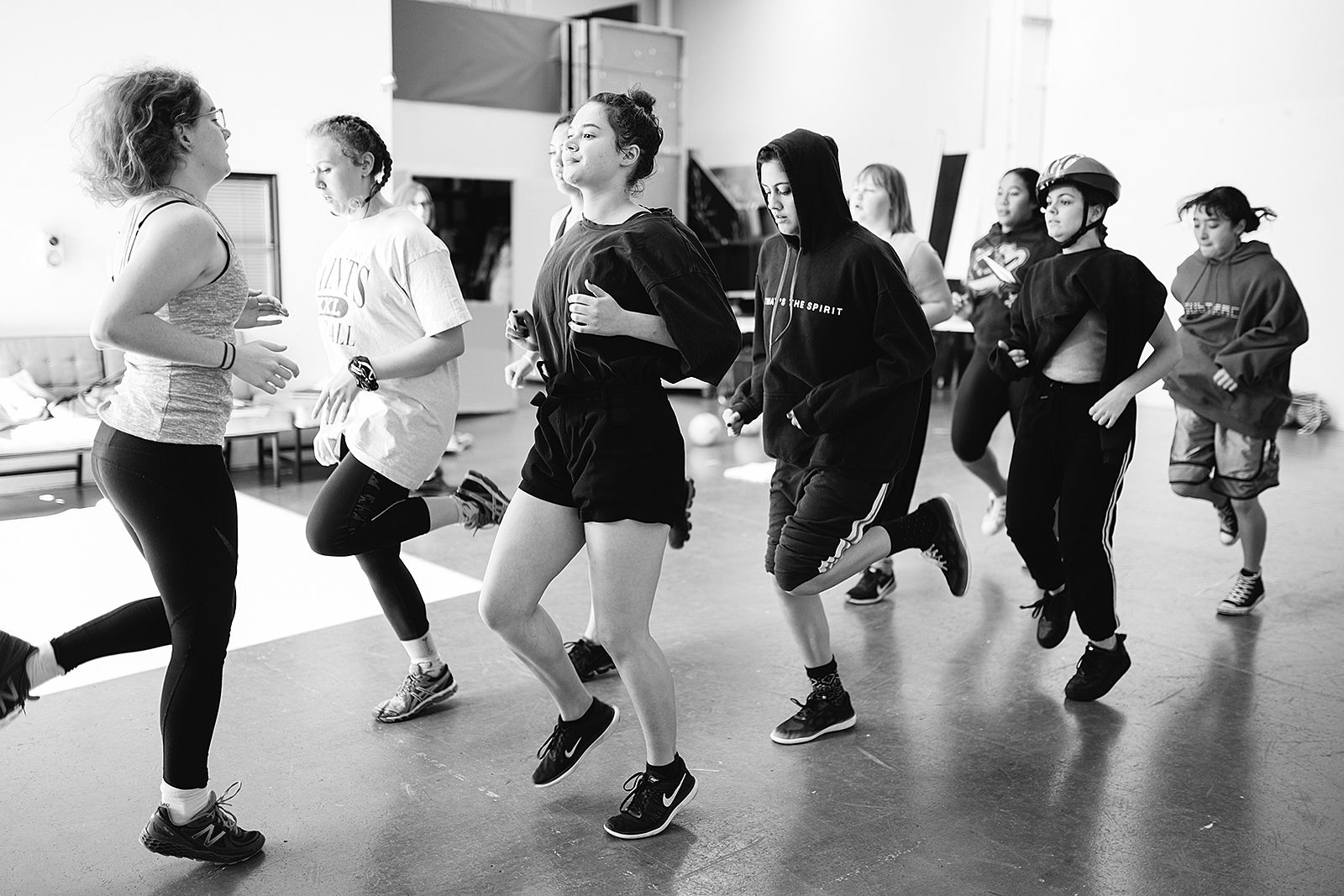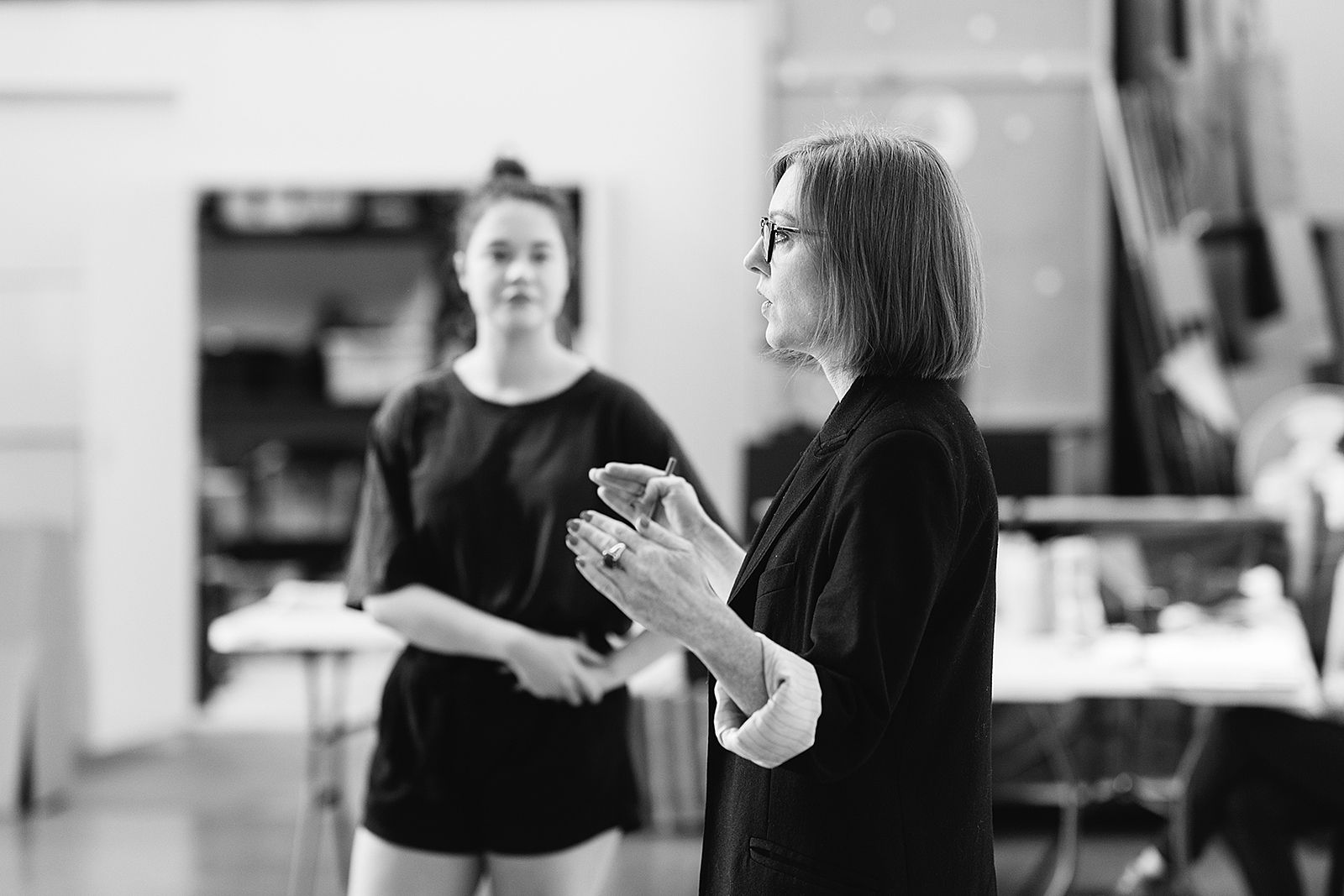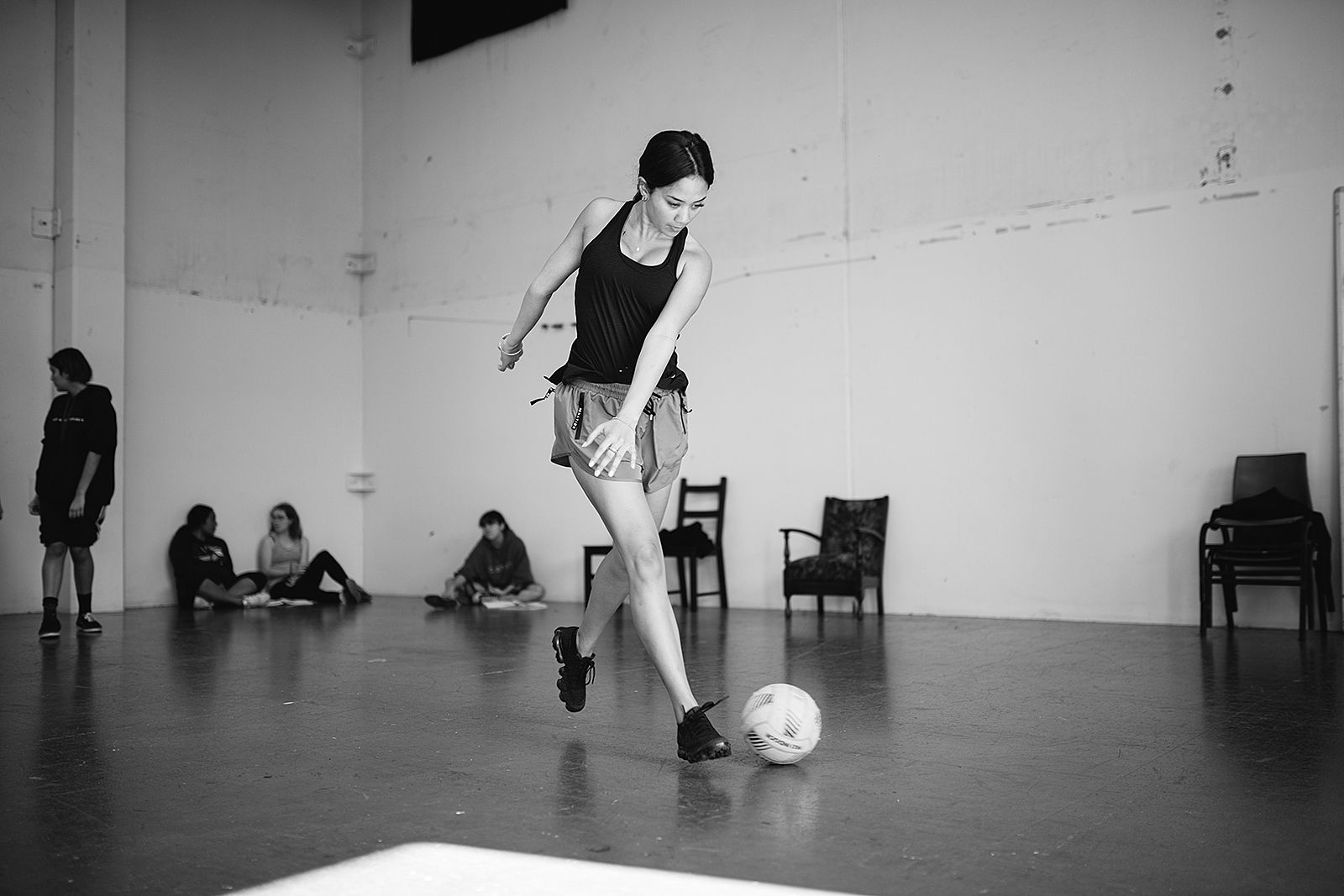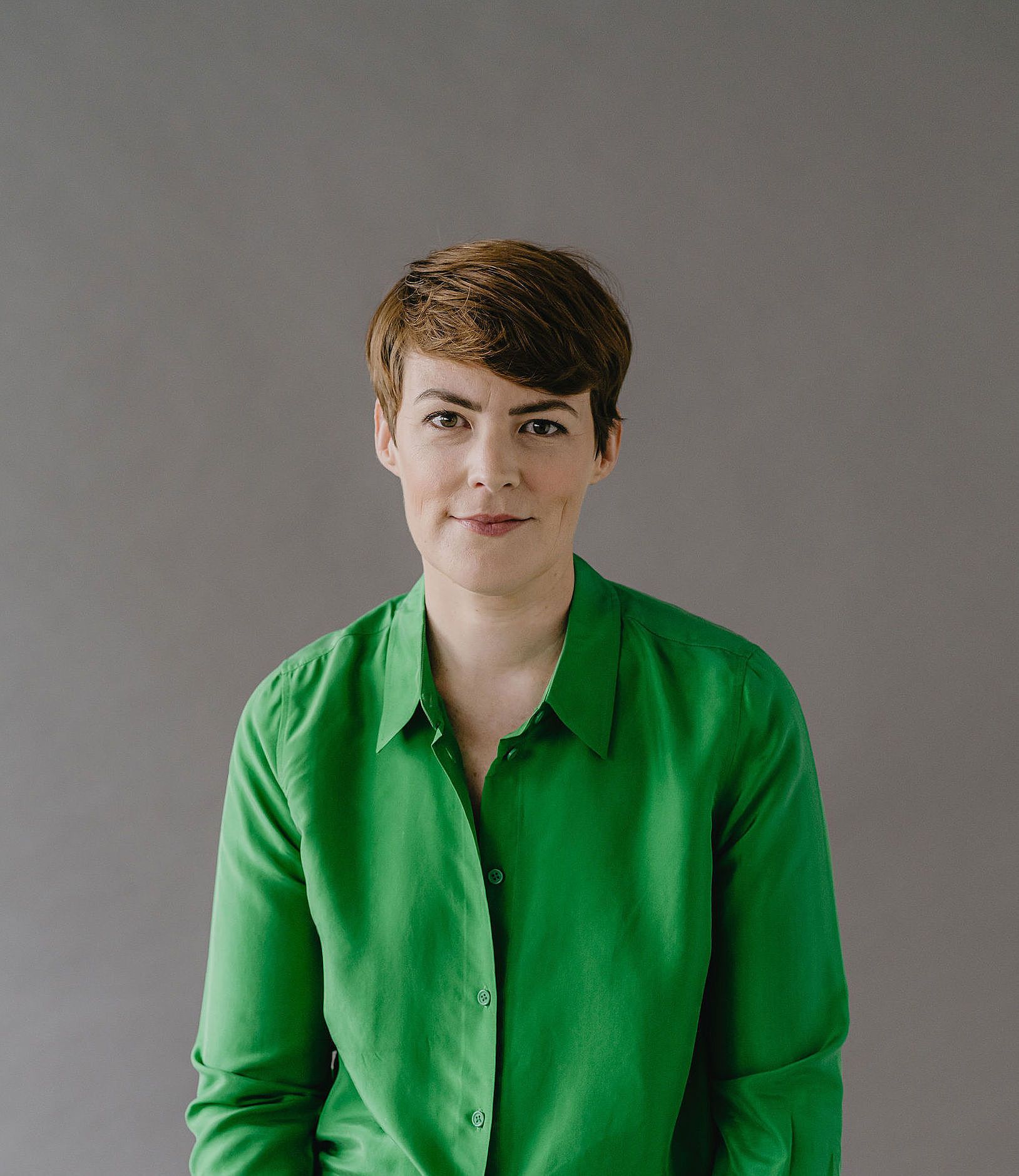The Wolves: New Voices In The Locker Room
What do teenage girls really talk about in the locker room? Kate Prior on Silo Theatre’s latest production, The Wolves.
I’m waiting for a burger somewhere in suburbia, and a group of 17-year-old boys walks in; cocksure, loud, rich kids, all jostling to impress. Something about their energy makes me feel the same wave of intimidation that would crash over me as I crossed the field of the all-boys school to get to mine when I was 17. I’m 37. It’s not just me that’s strangely, stupidly affected by this; when my boyfriend passes them to go to the counter, it’s almost imperceptible, but I’m sure he squares his shoulders a bit.
At the start of the script of Sarah DeLappe’s debut play The Wolves, there’s an epigraph from Gertrude Stein: “We are always the same age inside.” DeLappe’s play focuses on a group of teenage girls, but watching a rehearsal I was struck once again by that feeling of sameness, of time compressing, of being 17 at 37. This time it’s different though. Rather than a feeling of reflexive repulsion, it’s like a group of nine teenage girls speaking their truth in their own space has its own orbital pull. “There are ways in which looking back at that time in your life feels really far away, and ways in which these women just feel exactly like us,” says director Sophie Roberts.
The pre-game rituals and conversations of a soccer team of young women as they negotiate the world, their team and themselves – this is the astroturf terrain of The Wolves. Each scene takes place in the 15 minutes before the girls head onto the field for a new game, and as they twist, jump and warm up as a group, their conversations curve and bounce from genocide to hot mums to Amnesty International.
For Silo Theatre’s artistic director Sophie Roberts, who has a background working with young people, the decision to programme The Wolves came from a desire to produce something youth focused, but not necessarily only for a young audience. Putting the play in a mainstage context was important to Roberts, “treating it the same as we would treat anything else in the season, to legitimise young voices”. This is not theatre as part of a box-ticking exercise of ‘youth programming’, but main-bill curation, platforming voices that don’t often get that space. When searching for the right play in a contemporary canon where autonomous young women’s perspectives are rare, Sophie found the voices in The Wolves, drawn with such honesty and accuracy, to be hugely refreshing. “It sounded like young women, which I loved,” Roberts says. “The women in The Wolves exist beyond cliché in a way I don’t often come across in the scripts I read. We get to discover them on their own terms and observe them at the centre of their own experience.”
Apart from wry takes on dickhead older guys in the young women’s conversations, a joyous form of collective self-protection, what is notably missing from the chatter is romance and boy talk. Working out your place in the world involves a range of shifting tectonic plates, and in DeLappe’s nuanced script, none of those easy stereotypical markers of young women’s conversations exist. DeLappe’s characters are in the process of defining themselves through their relationships with each other. In a world that infantilises or smirks at girls for being vapid and vain, The Wolves deigns to take young women seriously.
The constant pressure in the world of The Wolves, more than anything else, comes from being inside or outside the group. As part of the audition process, Sophie asked actors to share a story about a moment of inclusion or exclusion. It hit a real nerve for all of them, and was something that the group has been really keen to talk about. “Teenage girls want to have that conversation more than, I think, people who are older who just want to pretend that those insecurities have gone away.” We are all the same age inside.
The drive, pace and rhythm of the language is what first struck Sophie when she read the script. “I loved that it was so much about the language and the rhythm and less about plot or really fixed character.” By stretching that language across a structure of pre-game scenes that are filled with pragmatic yet ritualistic movement, there’s a visual poetry too. “The physical ritual is like a steady heartbeat, but then the conversation can be chaotic over it, so you’ve got counter-rhythms happening,” Sophie observes.
There’s a simple power in watching young women in control of their bodies, owning their space.
Body autonomy is at the centre of The Wolves. There’s a simple power in watching young women in control of their bodies, owning their space. Roberts recalls, “I remember the feeling of being conscious of my body all the time as a young woman, of feeling looked at or observed. I remember feeling like the world was trying to teach me that my body was both vulnerable and dangerous. The Wolves is physical, but it demands that you look at female bodies beyond the male gaze.”
It’s a sentiment the playwright also echoes. DeLappe talks about reading Lewis Hyde’s The Gift, in which there is a section on women as ‘gifts’. “I was reading that and I thought about The Wolves,” DeLappe says. “It made me think that maybe what The Wolves is doing is giving girls the space to own their bodies and not be gifts to anybody. Not to be gifts to their parents or to their boyfriends or to the male gaze or whatever. But they’re just given their turf in which they can define themselves and have some sense of autonomy through these conversations with each other just as people.”
I was struck by another feeling when watching a rehearsal for The Wolves. When you’re 17 there’s such a pervasive sense of being ‘on the brink’, of 17 just being a stepping stone, of better-sort-it-out-now before adulthood comes crashing in. It can feel claustrophobic. Before leaving rehearsal I glanced down at one of the scripts lying on the floor. An actor had written a note to themselves in capital letters: TAKE YOUR TIME. A practical nudge about pacing, it was also a reminder that what we’re watching in The Wolves are discussions which aren’t precursors to anything, but rather important exchanges in and of themselves, and in and of their own time. Across seemingly innocuous yet significant conversations, the characters in the play are doing the important mahi of working it all out, which is graft that happens at 17, 37 or 67. “They’re people trying to figure out who they want to be and how to move through the world” Sophie says, “just like all of us, no matter how old we are.”
Silo Theatre’s The Wolves runs from 20 June (Preview) – 13 July 2019 at the Q Theatre – Loft. Tickets available here.
This piece is presented as part of a partnership with Silo Theatre and appears in the show programme. Silo covers the costs of paying our writers while we retain all editorial control.
Rehearsal images: David St George
